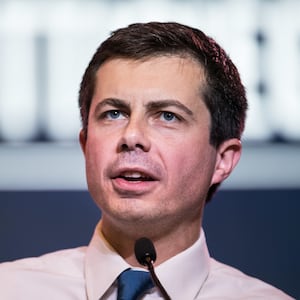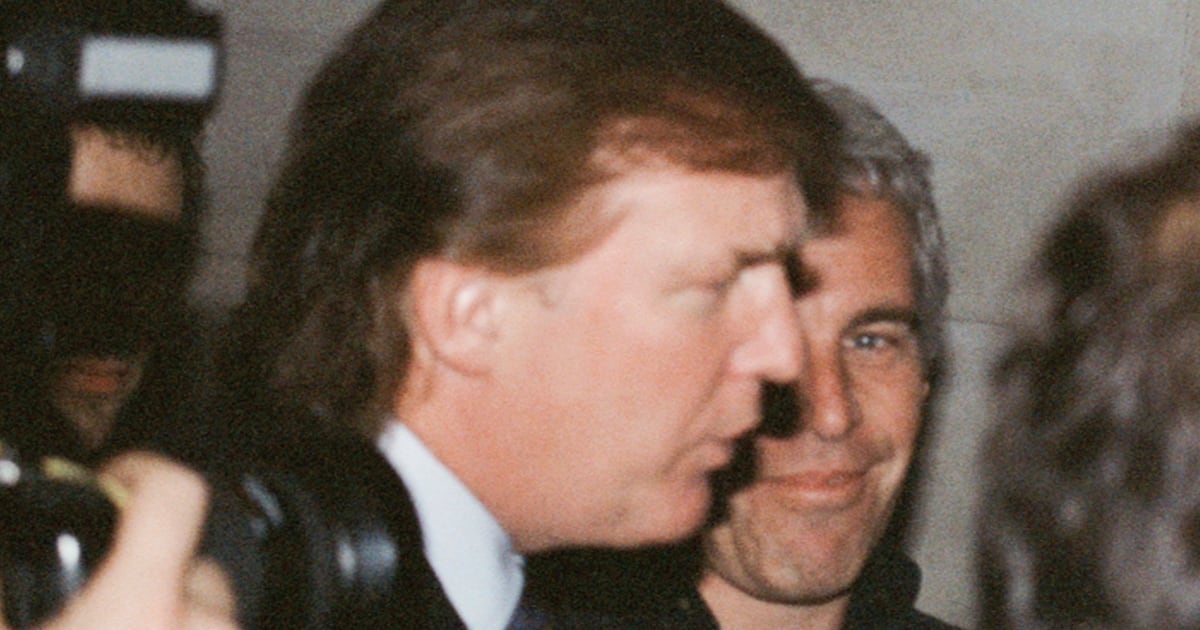NORTH AUGUSTA, South Carolina—A few weeks ago, a prominent black leader posed what seemed like a simple question to South Bend Mayor Pete Buttigieg during a private meeting: Who in the African-American community back home supports you?
“He didn’t name anybody,” the leader said in an interview with The Daily Beast. “If he’s got young black supporters, they do have names.”
That leader, who requested anonymity to speak openly about a private meeting, was not only referring to young supporters but expressing a sentiment that was apparent in talks with several African-American lawmakers: that Buttigieg’s interactions with the black community in recent weeks were “naïve” and that the national perception of him as “genuine and authentic” was not always translating when it came to their concerns.
“Pete has a black problem,” Rep. Marcia Fudge (D-OH), the former chairwoman of the Congressional Black Caucus, told The Daily Beast. “I don’t know of one black person out of Indiana that supports him.”
Buttigieg’s friction with African Americans both at home and on the campaign trail were brought into stark relief over the past week as the mayor temporarily paused his presidential campaign to address a fatal incident in South Bend this month. The police shooting of a black man sent the city into a state of raw emotion and opened wounds for many black residents he represents.
The tension reached a flashpoint as Buttigieg arrived in South Bend, which has a significant African-American population, on Friday, when a woman confronted him about his desire to win over black voters in the city. “You’re running for president and you want black people to vote for you?” the woman said. “That’s not going to happen.”
“Ma’am, I’m not asking for your vote,” Buttigieg responded.
When presented with Buttigieg’s comments, Fudge said they depict a sense of “arrogance” and “entitlement.”
“He has a test now,” another African-American leader said, referring to the police shooting. “If he’s going to get anywhere with black people at home, he’s got to handle this test, and he can’t win the nomination if he can’t impress black voters, period.”
On Saturday, Buttigieg swung through South Carolina, where the Democratic primary electorate is 60 percent black, to meet with local leaders and voters in the state, yet at his event in North Augusta, a predominantly white audience in the white-majority city showed up to hear him speak.
Asked at his event on Saturday what he took away from conversations with leaders of the Congressional Black Caucus, Buttigieg confirmed to The Daily Beast that he previously met with chairwoman Rep. Karen Bass (D-CA) and Rep. Jim Clyburn (D-SC), unrelated to his trip to South Carolina, and added some reflection from the interactions.
“Those meetings are extremely informative for understanding some of the issues that are at the top of their agenda,” Buttigieg said. “As long as black Americans are cut out of equal access to criminal justice, to homeownership, to education, to health outcomes that other Americans enjoy, we’ve got a problem.”
“These are the issues that are central to the Black Caucus based on the conversations I’ve had with them.”
The African-American leader, who was granted anonymity, said the meeting was held at Buttigieg’s request and lasted “well over an hour.” The leader described the conversation as “substantive” and said the 37-year-old mayor was very attentive during the chat.
But his answers to pointed inquiries about his black support in South Bend left lingering questions about his broader commitment to the African-American community, a critical and reliable segment of the Democratic Party’s national electorate.
“He left me with the impression that he had not thought about getting individuals to endorse him and that he would go back and do that,” the leader said, adding that Buttigieg mentioned having been re-elected by a significant majority of the city’s vote in their conversation.
The leader was further turned off when they heard him repeat the same answer to MSNBC’s Chris Matthews, who asked during a televised town hall this month about his chances of getting elected as a married gay man.
“I got re-elected with 80 percent of the vote because people just cared about what kind of job I was doing for them as mayor,” Buttigieg said to Matthews.
Recalling hearing a similar answer when pressed in private, the leader said, “he still didn’t name people… either he didn’t listen, or he does not have the support.”
An official from Buttigieg’s campaign disputed the characterization of the meeting, saying, “Pete has spent years building and fostering a diverse coalition, including leaders in the city’s black community and other minority communities, faith leaders, small-business owners, and his mayoral administration—to tackle systemic inequality and distrust in the city.”
He also noted several leaders Buttigieg has worked with in the past.
“He’s constantly consulting and communicating with African-American leaders in the South Bend community, including Kareemah Fowler, the city clerk whose campaign he supported; Michael Patton, the head of the local NAACP chapter; Gladys Muhammad, a local Democratic leader; and Karen White, a top African-American leader in the community who sits on the Common Council,” the campaign official added.
After this story published, the Buttigieg campaign contacted The Daily Beast noting that they mistakenly listed Kareemah Butler as a supporter instead of Kareemah Fowler.
Buttigieg earns a smaller share of black voters than some of his top rivals in the 2020 contest, including former Vice President Joe Biden and Sen. Bernie Sanders (I-VT), nationally. In the latest Economist/YouGov survey from mid-June, Buttigieg earned 18 percent to Biden’s 68 percent and Sanders’ 35 percent of support in that community. But he has made recent headway in South Carolina with black voters, earning 6 percent in the latest Post and Courier-Change Research poll. And in recent days, some prominent African-American leaders in Indiana have praised his efforts.
Patton said over the weekend, “I believe he gets it. He’s got some good people at the table that have joined him and it is a diverse group of people who bring different perspectives.”
But during a heated town hall on Sunday in South Bend, a predominantly black audience grew increasingly angry with the mayor, who tried to address their concerns head-on.
“What I hope African Americans watching this see is that our city is facing this,” he said. “We’re not running away from it. This isn’t theoretical for us, this isn’t something being debated in Washington. This is our problem, as it is a problem in so many places. And we are on the front lines of it. And we’re doing everything we know how.”







